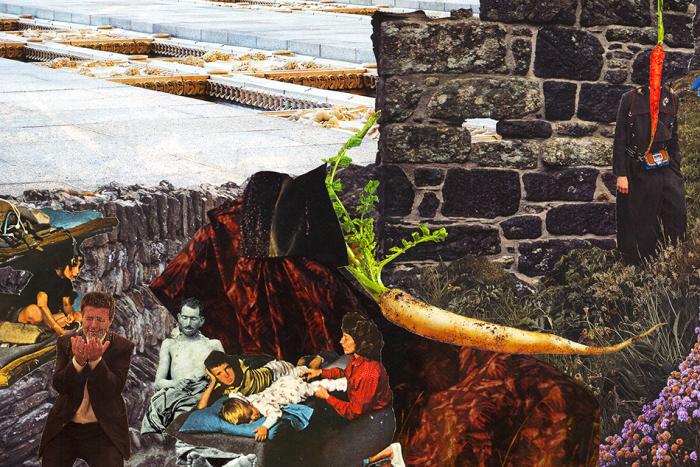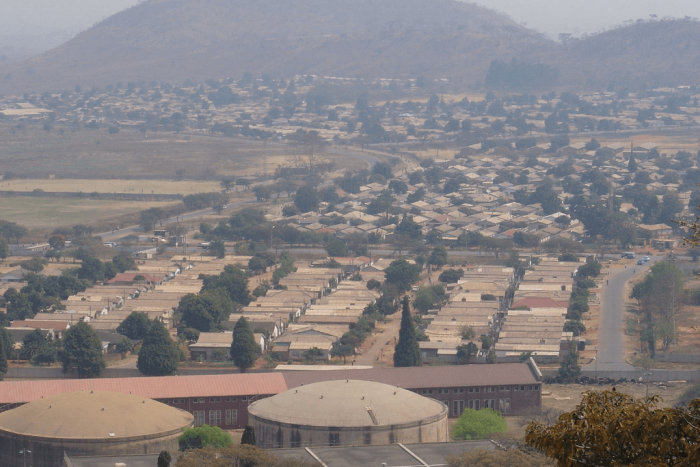What was important to us in 2016? Hazlitt’s writers reflect on the year’s issues, big and small.
Blessings be for the ascent of the phrase “taking the L” this year because we needed an easy shorthand for just how much shit democracy ate. Taking the L means to take the loss, to recognize defeat. Its popularity reached an all-time high in the U.S. one week after the election, and what line better encapsulates 2016? The year I took the L. The neologism does, among other things, keep me from having to admit something more truthful, such as “I lost,” or “I’m sorry,” or above all, “This is my fault.” But until these surgeons stop being cowards and agree to graft a latex Crying Jordan mask onto my face, I’m just going to take the L. I don’t know if I can take the blame.
Because earlier this year, a guy I had considered a friend walked out of a conference room and left me sitting alone with the head of human resources, there to be fired. He fired me. I was fired.
My first thought was that I’d miss the expensive Nespresso machine in the office, which after eight months of guesswork I had finally figured out how to use. There were, of course, no written directions on how to operate the vastly confusing contraption, just like there were no written warnings (or probation, or union protection) preceding my firing—just this sudden and pathetic climax after eight months of caffeine-fueled content creation for a billion-dollar media company. At the brief trial that took place just before the guy who until that moment had been my friend walked out of the conference room, I spoke foolishly from the depths of my heart in defense of my employability, my self-worth, my heritage, my typing skills.
If there were an instant replay of these moments, it would certainly reveal me to be an inglorious mutt begging for my life. I took a breath to collect myself because I could feel my heart racing and the tears pressing behind my eyes. Time flowed like molasses in that conference room, one of those nightmares where the earth’s gravity is multiplied by ten and you just can’t seem to hit the tennis ball Dennis Hopper is serving at you. Words came out of my mouth as strange glyphs that had no effect on anyone. It was an Internet argument taking place before my eyes.
And so on behalf of my friend who played a boss in real life at the billion-dollar media company, the head of human resources handed me a slip of paper, an official document that said I was to blame. There was no trial or jury, just the clunk-clunking of a bureaucratic system that began with suddenly being logged out of Slack and ended fifteen minutes later with two weeks’ severance, a backpack full of personal effects, and me ruing the riddle of the Nespresso machine in order to keep from thinking about anything of real consequence. The next morning, a week before I turned thirty-one, I rationed my body wash more carefully than I have ever rationed my body wash in my life.
Bury me in screeds excoriating the fedora fascists and Brocialists, identity politics and Hillary Men, and Jill Stein—sweet red hell, carve into the mountains the record of her faults. Give me vitriol and acid. I am at my worst, I am at my Durst, give me something to break! O! Quench these intemperate emotions that whistle through my bones with someone else’s blood.
It’s an unequivocally shitty and embarrassing feeling to be fired. And yet, despite it, I have been and am still lucky in the countless ways I have managed to avoid abject penury. All that remains with me now is the proper setting cum pod selection for an instant cappuccino and the blame. The blame burrowed deep and took residence in my unconscious. I was officially to blame; there is a record of this, professionally speaking. This blame led me into a warren of decisions: I could harbor resentment, I could exact retribution, I could probably sue for wrongful termination, I could vent about it all day on G-chat. But metaphysically speaking, I felt blame had to be transformed into something else—transferred onto someone else. It was useless sitting inside me.
*
Months later, after Donald Trump won the election on a platform whose tenets amounted to little more than “blame others,” I too sought out worthy targets. In those post-election moments of disbelief, I didn’t want to read milquetoast mea culpas by feckless Democratic do-gooders talking about what they could have done better—I wanted to take arms against a sea of racists and sycophantic neoliberals. Guide me, you essays, so my fear is sharpened to a righteous and deadly point. Bury me in screeds excoriating the fedora fascists and Brocialists, identity politics and Hillary Men, and Jill Stein—sweet red hell, carve into the mountains the record of her faults. Give me vitriol and acid. I am at my worst, I am at my Durst, give me something to break! O! Quench these intemperate emotions that whistle through my bones with someone else’s blood.
In those rare and elevated moments of rage, it felt like there was some momentum and justice: Here was a multitude of people who had done many things wrong, and who needed to know it. For as long as the fabric of America remains woven with martial power and patriarchy, casting blame will remain politically effective. One’s own culpability holds little value in a system that puts a premium on performing confidence and arrogance—a perpetual abnegation of personal responsibility. What nobility is gained by owning defeat when scapegoating works so well? You can even be elected President of the United States on the premise: illegal immigrants, refugees, Mexicans, Muslims and all those who seek to provide them with unalienable rights, China inventing global warming, the Affordable Care Act, Obama generally, the elite, the media, the swamp, Lorne Michaels. It is now a major function of modern democracy, a maneuver to be etched in history books, that in this year the vox populi made clear their preference for broad referendums over building coalitions. The winning hats read Make America Great Again, not America Was Never Great, and it is Trump’s brave refusal to ever admit he is wrong that will lead our country into a new era of surplus, crispy, luxurious freedom.
And so I keep asking myself: Why should I accept blame? It’s a losing bet. No one wants to read about that, a mewling essay full of apologies. It’s not sharable and it’s not relatable. It’s almost an act of selfishness, content-wise—to share an apology reflects weakness, not strength, a whisper, not a bullhorn. Our president-elect talks loudly and carries a stick made of pure Aztec gold. Large swaths of America believed so thoroughly in this ideology that they elected a man who, until he hoodwinked an entire nation, was most famous for firing people on a television show. Trump knew it all along: there is no social capital in culpability.
The problem is we are all, nativists and globalists alike, on the same downward trajectory. We live in the Anthropocene, an epoch defined exclusively by humans becoming the largest threat to the sustainability of the earth. The blame of the slow heat death of civilization lays abstractly on us until we see the Facebook Live video of the salt waters flooding the streets of Miami and Savannah. On that too-warm afternoon down in Atlanta Bay, will we rail against the climate-change deniers of the previous century? Will we condemn the industrialization of society and the deregulated capitalism that stole centuries from our future families? As we die, who can we blame for our death?
*
So here we are together failing broadly all at once, unified by our lack of success, twirling into extinction. In the dark and waning years of the world, there is immense power in choosing to be at fault. Before the oceans rise and the demagogue takes his throne, it’s this recognition that can provide a true and sonorous paradigm for progress. It was my lack of participation in the electoral process buoyed by eight years of complacency; it was an arrogance and lack of respect for my friend and boss; it was not asking for help with the Nespresso machine when I saw someone using it deftly and with confidence. I confess now I want to take more than the L. I am to blame, I possess it, and I will own this in a way that is neither saccharine nor insufferable because I fear for this world and I want to change it. No need to transfer this to someone else, now that I am endowed with full understanding of my own actions. I will not capitulate to the ideology that installed a fascist into the highest office of the land.
We all have the ability to blame others. It comes natural, feels powerful and cathartic, and is essential to a society that seeks to dismantle oppressive systems and those who oversee them. If we can do this, then we can all take part in the radical act of blaming ourselves for this year and the years to come. Give it currency. Rate, like, and subscribe to culpability to help reverse the flow of democracy. Understand what you did wrong, not in the specious “every failure is a success” sense, but in an act of unflinching self-examination and, as the singer Anohni told me in an interview earlier this year, rigorous honesty. These radical acts of accountability can help loosen the bonds of our world that strangle the poor and marginalized. See where taking the L takes you.






